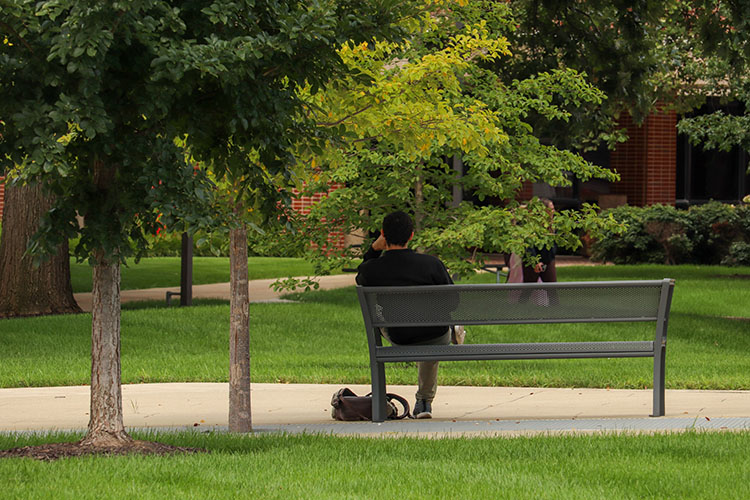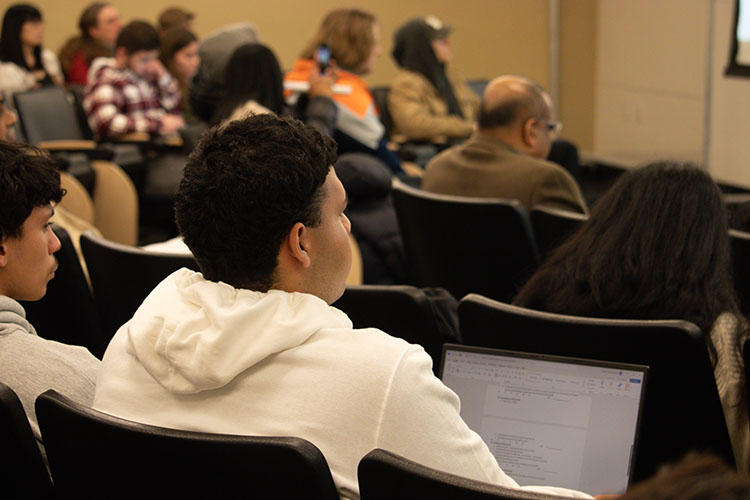Support Workshops
The Office of the Dean of Students provides several types of training programs for students, faculty and staff.
We provide training on:
- Respecting boundaries,
- Developing allies through Safe Zone and
- Bystander-intervention training through Step UP! Bystander Intervention.

Respect Boundaries
Sexual Violence Awareness Program
Purdue Northwest is committed to maintaining a positive and safe environment free from all forms of harassment, including sexual harassment.
Safe Zone
Safe Zone is an ally development program that is facilitated through the Office of the Dean of Students in conjunction with student organizations on campus.
The Safe Zone program aims to create a visible network of support for LGBTQ individuals and their allies by providing an avenue through which any member of the Purdue University Northwest Community can show their support.
The program also creates an educational experience through the Safe Zone Workshop.
The Safe Zone workshop is one workshop that encourages the exploration of personal and cultural identities, privilege, and what it means to be an Ally.
The Safe Zone program encourages students, faculty and staff to explore cultural identity, values, and stereotypes in order to better understand how these issues impact the university, the surrounding community and the LGBTQ communities.
How to Get Involved
- Participate in a Safe Zone Workshop
- Become a Safe Zone Facilitator
Email dos@pnw.edu to sign up for future training or for further information.

Step UP Bystander Intervention
Developed by the University of Arizona and the NCAA, PNW’s Step UP! program raises awareness, provides skills and educates people to recognize the continuum of violence.
You can help prevent incidents before they occur and help to keep your friends safe. Bystander-intervention training empowers participants to recognize, intervene, prevent and/or stop inappropriate comments, actions and behaviors. The entire campus community plays a valuable role in preventing acts that violate the basic dignity of an individual.
Training Goals
Often people don’t intervene because they may assume the situation isn’t a problem, or feel it is none of their business. They may assume that someone else will do something, or believe that other people weren’t bothered by the problem. In some cases, a person might feel their personal safety is at risk.
When people do intervene in a situation, they often say that it was the right thing to do and that they’d want someone to intervene if the roles were reversed.
PNW Steps UP!
The Five-Step Decision-Making Model
- Notice the event
- Interpret it as a problem
- Assume Personal Responsibility
- Know how to help
- Step UP!